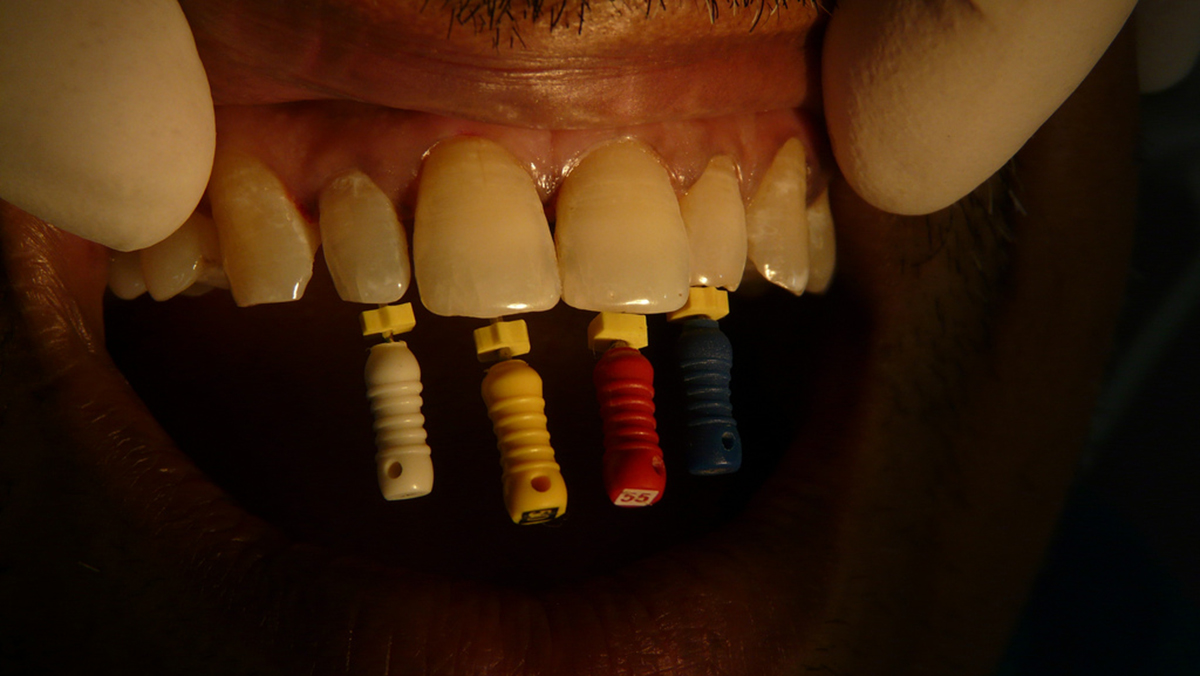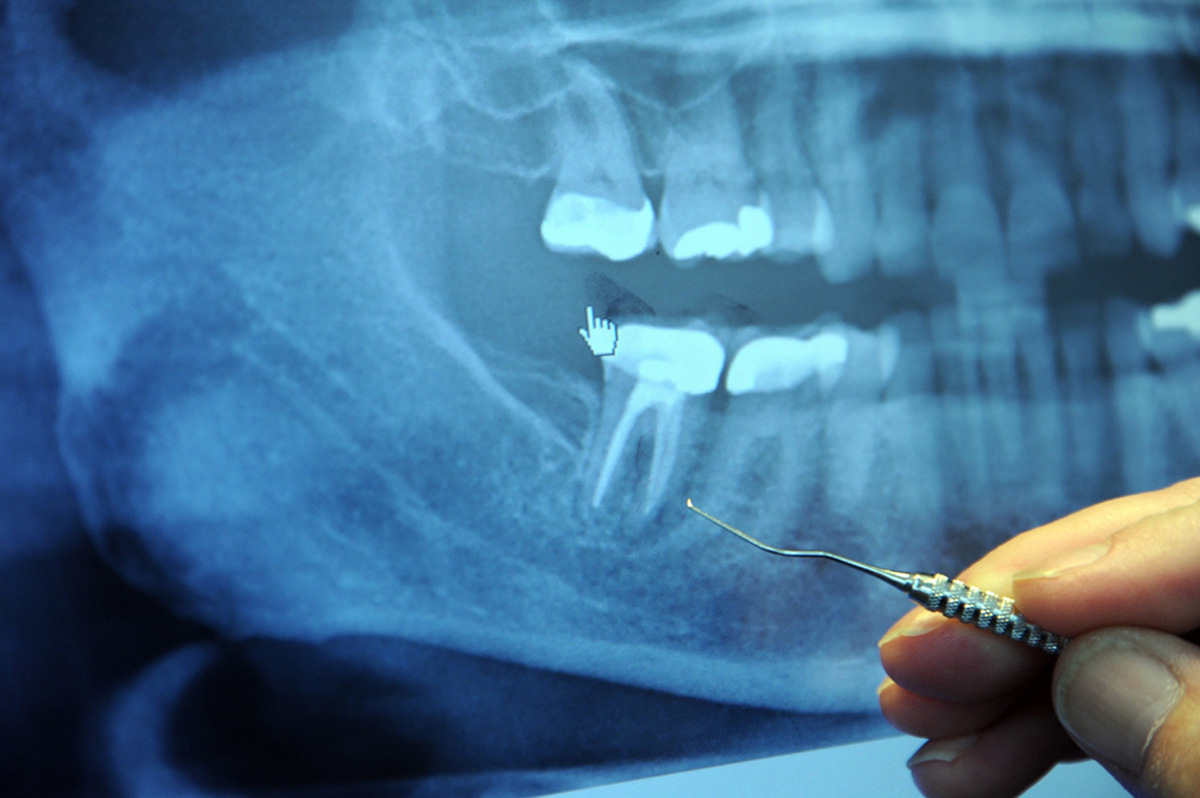Getting a root canal done is a big deal for most people. The procedure itself is more often than not painless but years of social training to the contrary has put a sometimes irrational fear of getting it done in most people.
This is why it can be a real blow to the gut when you find out that the root canal procedure you had clenched your fists through has now failed! Here are some reasons why that can happen.

Operator Error
A root canal is a blind procedure in which the Doctor is working through the use of X-rays and tactile feedback. This makes the root canal inherently prone to errors. It is also a procedure that is performed by almost all dentists regardless of their specialty since it is a part of general dentistry. The individual skill of the dentist plays a large part in the success of the root canal treatment.
Some of the common mistakes that are made during root canal treatment include extending beyond the apex of the tooth and thus damaging the structure at the root tip. This is not something that is very serious and can be corrected during the procedure itself. If the final material used to fill the root canal is extending beyond the tooth though then it is likely to cause chronic pain and inflammation.
The other side of the coin is not cleaning and shaping the entire length of the canal. In such a situation, the length to which the doctor has performed the procedure is less than the actual length of the canal. In such a case, a small majority of the patients will have pain after the root canal has been completed.
The files or the pointed instruments used by the dentist to perform your root canal can be twisted or curved beyond their limit and thus break inside the tooth. File breakage happens much more commonly than people think, especially when the procedure is being performed by dentists who have not specialized in the field of root canals.
READ Root Canal Treatment: No Longer The Stuff Of Nightmares
None the less, an instrument breaking inside your tooth is not quite the disaster it sounds like. Depending on where the instrument has broken inside your tooth, it can either be bypassed, retrieved or most commonly just left where it is. The likelihood of a tooth with a broken instrument inside the canal failing is more than one where it has not, but it is not uncommon for such teeth to survive for years after the procedure has been completed.
If the instrument is extending beyond the apex of the tooth though then the chance of root canal failure is much higher and the tooth would likely need to be extracted later.
Another thing that can happen is that the dentist can drill deeper than is required and end up perforating through the tooth. This makes it virtually impossible to achieve a seal stopping the flow of microbial agents into the area and a root canal failure is almost certain at this point.
More Reasons Why Root Canal Treatment Fails
Non Operator Error
A tooth that has been properly treated and undergone a good root canal can also fail after a few years and this happens in about 10% of the cases. While the actual cause may never be known clinically, researchers have found a few possible reasons.
Irregular Root Anatomy
Every tooth is different from one another and sometimes this variance goes beyond what one would consider normal. Some teeth are present with a root that is so curved that cleaning it out completely is close to impossible while there are other situations where the teeth may have an extra tiny root altogether.
The chances of root canal failure increase exponentially in such cases.

Calcified Canals
The canals at the center of our teeth and roots can undergo calcification for a number of reasons. In such cases, there may be areas of the roots which are completely blocked off and thus cannot be accessed by the instruments.
There are methods to try and bypass calcified canals as well, but once again, the increasing complexity of the procedure adds to the likelihood of failure.
Resistant Microorganisms
A successful root canal treatment results in the elimination of infected pulp tissue from the tooth. Once the root canal has been completed, there should be no microorganisms that remain inside the roots. The dentist looks to achieve that through mechanical instruments and the use of chemical irrigation agents.
A number of researchers have found that root canal failure in cases where there was no apparent error can take place due to the presence of resistant micro-organisms that are not eradicated during the root canal process.
They continue to cause havoc inside and around the teeth eventually leading to root canal failure.
READ Connection Between Root Canals And Cancer
Excessive Occlusal forces
A root canal treated tooth should be protected by a crown and care should be taken that excessive occlusal forces are not being applied to the tooth. Any tooth which is subjected to traumatic forces over a period of time will become a liability, root canal treated or not, however, the process of drilling through the tooth makes root canal treated teeth more susceptible to such damage.
Crowns should be prepared in a proper manner ensuring that there is no leakage from the margins, no food is getting stuck near the edges and that it is the right height in accordance with the other teeth around it.
Vertical fractures, the kind which is extremely difficult to detect on conventional Xrays, are also much more likely to occur in root canal treated teeth under excessive occlusal forces.
Conclusion
A root canal procedure is one which has to be performed with the utmost precision and care to be successful. Advances in technology and methodology have meant that a successful result can be obtained with far more regularity than ever before.
As a patient, there is not much that you can do in such a case except follow the dentist’s instructions. What you can do is to try and ensure that your root canal treatment is being done by an endodontist (a dentist that specializes in root canal treatment) or by a general dentist that you trust from experience.
- jamiethedentist.com/root-canal-treatment/failure
- www.orocentro.com.br/files/file-102715188.pdf
- www.britishendodonticsociety.org.uk/patients/further-information.html
- Photo courtesy of ps_sahana: www.flickr.com/photos/ps_sahana/13996087837/
- Photo courtesy of wonderlane: www.flickr.com/photos/wonderlane/6219931567/
- Photo courtesy of wonderlane: www.flickr.com/photos/wonderlane/6219931567/


Your thoughts on this